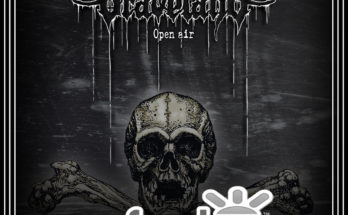Matt Coe of DeadRhetoric.com recently conducted an interview with METAL CHURCH guitarist Kurdt Vanderhoof. A few excerpts from the chat follow below.
DeadRhetoric.com: When Ronny Munroe left METAL CHURCH in 2014, how did the process flesh out with getting Mike Howe back on vocals? As I’ve read in other interviews that if you weren’t able to get him back on board, there would be no more METAL CHURCH in that sense…
Vanderhoof: Well, yes. It was literally a week to the day about a year ago I contacted Mike about working on a little side project that I was working on with Nigel [Glockler] from SAXON, and planning on doing at the time. We were trying to kick around singers and I hadn’t spoken to Mike in a while, so I reached out to say “hey” and see if he would be interested in doing something, what his involvement was in the music business was, etc. He was open to the idea. We caught up on life, and literally a week to the day, we found ourselves in need of a singer for METAL CHURCH. So now it was, “Forget about the side project. How would you like to be the singer again for METAL CHURCH?” He was very open to that. We took things step by step and we didn’t jump right in. We started writing songs and he didn’t want to just do it to do it; he wanted to make sure the songs and the record would be as good as it could be. He wanted to get a feel for the new music business model and the way we do business now, step by step.
DeadRhetoric.com: Did fear ever set in when you had to replace David Wayne with Mike for “Blessing In Disguise”? Especially coming off of a period where “Watch The Children Pray” was in heavy rotation on MTV…?
Vanderhoof: Was there fear of bringing Mike in? Not really, because the situation with David had gotten so bad that’s why we had to bring a new singer in. If you imagine a band that’s taking off and we are going up and then it got bad enough to where we had to fire our singer. We knew we had to fix it, the band would not have been able to continue so that’s why we replaced him. It helped the band.
DeadRhetoric.com: What was the toughest thing for you to handle during the first ascension of METAL CHURCH popularity in the 1980s?
Vanderhoof: For me, coming to the realization of how the music business worked back then. And the whole notion of being in a rock band, you get to be your own boss — turns out that wasn’t the case. You ended up working for the record company, and they were taking all your money. Even though they were giving you money and advancing you money, it was all recoupable. You had to sell bunches and bunches of records or you didn’t make any money at all. It was a horrible thing and a horrible realization for me, that I’m achieving my dreams and I’m miserable. They put you on the road and keep you busy, and give you enough money to keep doing it and let you think you are being a rock star, until you grow up and come home to realize you don’t have anything. So coupled with that fact that after we did “The Dark” album, I found myself wanting to really learn about making records, engineering, and production, so that’s when I started building my own recording studio and going down that path. It’s why I left the band but continued to work with them in the studio recording and writing songs. I wanted to learn to make records. Playing live is great and I love it, but there is a lot of dead time on the road. The other 22 hours a day can get pretty boring. I knew that for me to stay in the industry and be in control of my work, I had to learn how to do it myself. I had a premonition that led me to here now.
DeadRhetoric.com: How do you view the metal scene currently in comparison to the 1980s and 1990s?
Vanderhoof: I think if people are into the metal thing they are probably in a place where they’ve learned how to play properly. I blame the ’90s for when metal was unhip and playing ability went out the window. I think there’s a repercussion for that, and rap and hip-hop that is very computer-generated is doing a lot of damage to the artform of music as far as having kids learning to play an instrument and learning to play it well. There is no musicality in sampling and talking — it’s put the bar low. The kids that follow actual metal and rock, if they follow the craft and don’t want an easy way out, I think they will keep this alive. I worry about it but there are enough kids that are starting to get it, they will pick up the mantle and start running with it. There are bands that draw off the same influences that I did and create new music.
Read the entire interview at DeadRhetoric.com.

Source: Blabbermouth


